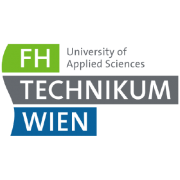Qualifications for Project Managers: Project Management Master’s Programme (in English)

The Master’s Programme in Project Management (in English) is implemented by the College of Communication and Public Relations (the National University for Political Studies and Public Administration), in Bucharest, Romania.
The Master’s Programme in Project Management (in English) (abbreviated MPE) aims at the professionalization of this profession in Romania, in strong collaboration with the world of work and the Project Management Institute, the most important international professional organization in the field. It is the only professional MA in Central and Easter Europe accredited by the PMI. It provides students with: significant discount of PMI membership fee & free access to professional e-learning resources; significant discount of the certification fee & access to special training for CAPM & PMP accreditation exams; curricula based on the main project management standards that are internationally recognized (Waterfall, Agile, Scrum, PMBok).
The coordinators of this MPE incorporate the specific needs of the employers in the curricula in the following manner:
1. By inviting project management professionals to participate in building and adapting the curricula, as well as in teaching activities. The majority of the courses are thought by guest lecturers with a long-standing career in project management. Being practitioners, these lecturers have first-hand knowledge of the needs and requirements on the labor market. Therefore, they respond to these needs by permanently adapting the content of their courses to the latest developments.
2. By closely following the standards enforced by the PMI, these guidelines, methodologies and standards are developed by the PMI under strict protocols and in close collaboration with the world of work. PMI standards are developed and approved through a consensus-based process that ensures all interested stakeholders can participate. PMI is an American National Standards Institute (ANSI) accredited standards developer, and their process conforms with ANSI procedures. Furthermore, the PMI methodology is enforced and recognized worldwide, not only on US territory. Standards development follows six steps:
- To develop a specific standard, PMI charters a committee including a chair, vice-chair and volunteers, and assigns a PMI staff member to serve as a resource.
- The committee meets over a period of several months to draft and refine the standard.
- The PMI Standards Member Advisory Group (MAG) and subject matter experts review the draft and return it to the committee for revision.
- The revised exposure draft is made available for public comment, which the committee considers and revises again.
- The finished standard is sent for approval to the PMI consensus body, a group of independent volunteer members who validate the development process of each PMI standard.
- Upon recommendation by the PMI standards manager, the new standard is approved by PMI’s president and CEO.
Furthermore, the incorporation of research into the standards development process enhances the current consensus approach by detecting and monitoring trends in the profession, ensuring organizational strategy is incorporated, and providing evidence-based information to assist the Standards committees to make informed decisions for future standards.
3. By teaching students a vast array of methodologies for project management, currently used by organizations around the world. When building the curricula, the coordinators of MPE took into consideration not only the PMI guidelines, but decided to include other popular methodologies (eg. Waterfall, Agile, Scrum). These methodologies were identified as being useful in collaboration with reputable professionals in the field.
4. By encouraging the lecturers to conduct on-going research in the field. MPE lecturers are not only practitioners, but also academics with a strong preoccupation for conducting research on the latest trends of their profession.


